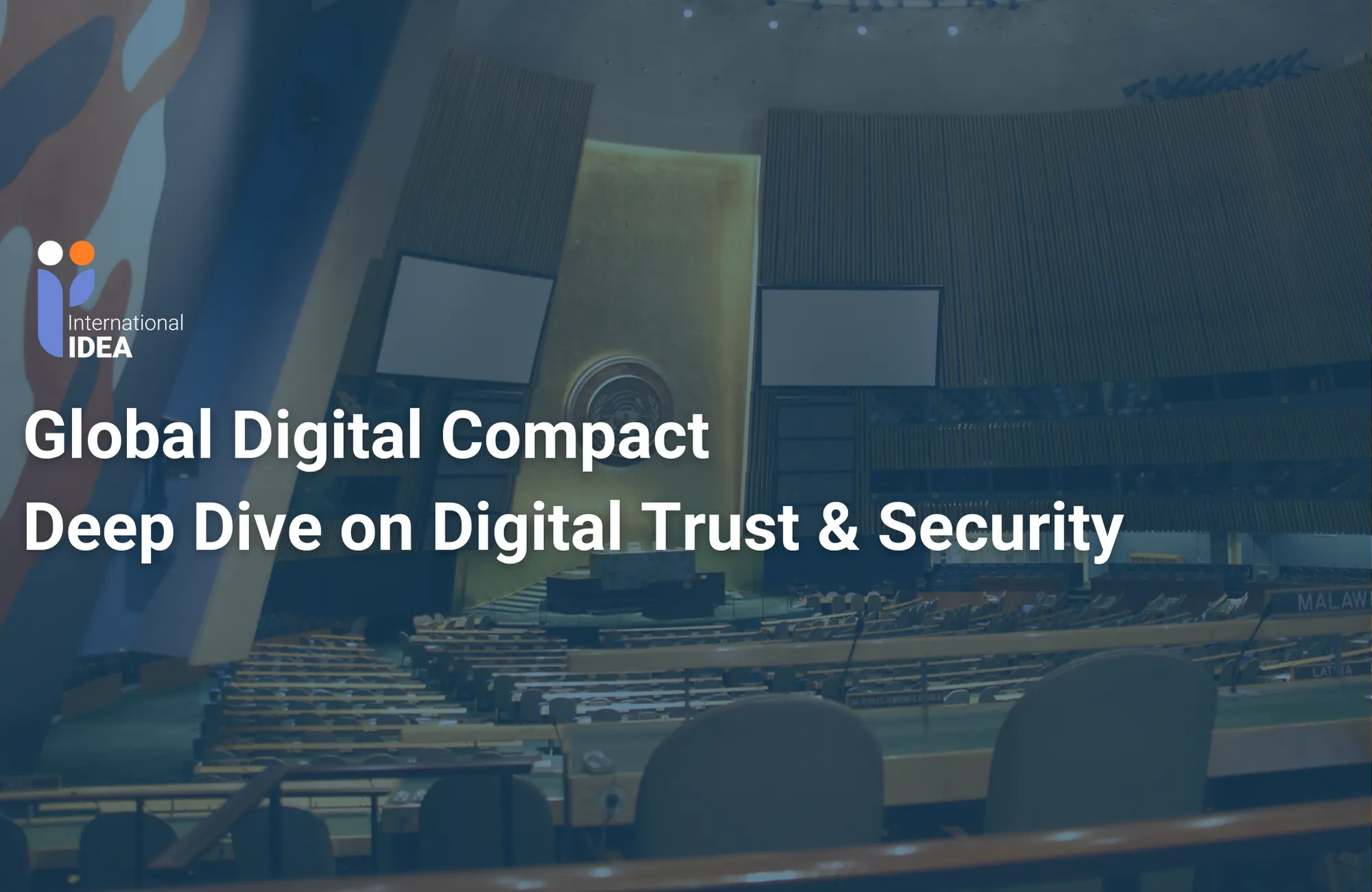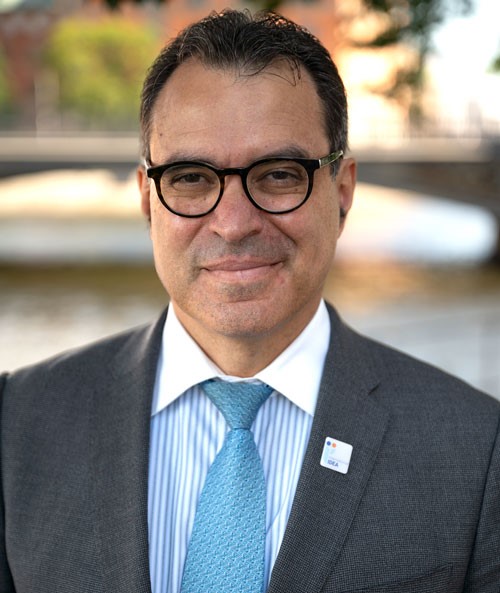Statement at the Global Digital Compact informal consultation: Deep Dive on Digital Trust & Security

"Global Digital Compact: Deep Dive on Digital Trust & Security"
25 May 2023
New York, United Nations Headquarters
Statement by
Kevin Casas-Zamora, Secretary-General
International Institute for Democracy and Electoral Assistance (IDEA)
Excellencies,
We would like to thank the co-facilitators of Sweden and Rwanda for the opportunity to provide inputs to this deep dive on Digital Trust & Security for the Global Digital Compact.
International IDEA is an intergovernmental organization with the mandate to strengthen democracy worldwide. We, therefore, look at technology through the lens of democracy. We recognize the enormous potential of technology for strengthening and renewing democracy. Digital technologies lower the cost of collective action. They create new arenas for civic engagement and communication. They provide a channel through which people, including marginalized groups, can make their voices heard, influence policies, and hold governments to account. They enable democratic innovations that enrich representative democracy with participatory tools. They improve access to and the flow of information in society. And they can bring decision-makers closer to voters.
In International IDEA’s most recent report, we document the booming landscape of democracy technologies and identify areas of application, from online participatory budgeting in cities and municipalities, to online voting, or urban design. However, we know that new technologies also pose unprecedented threats to democracy and human rights and play a key role in democratic backsliding processes around the world. New technologies have become accelerators for the spread of disinformation, hate speech and harassment towards vulnerable groups. They can be turned into powerful and opaque tools that can be used for mass surveillance, abuse of private data, manipulation of public opinion, distortion of electoral outcomes, polarization and deepening of divides between people and among nations.
Even technologies meant to enhance democracy through citizen participation can inadvertently undermine democracy through weak quality standards and poor data protection. We also recognize the difficult trade-offs democracy technologies sometimes pose: more security does not only come with a higher price tag, it also increases the barriers to participation (for example through more advances user authentication mechanisms). Lower thresholds and convenient access can open the door to non-eligible or malign actors to abuse the system to their advantage. This can reduce trust in technology, which in turn can contribute to reduce societal trust overall, including in democracy itself. Lower levels of societal trust have both political and economic consequences, reducing social cohesion, spurring political instability, increasing transaction costs, and reducing compliance. This in turn puts at risk the achievement of the 2030 agenda. We, therefore, urge the Global Digital Compact to recognize democracy technologies as essential democratic infrastructure.
We also encourage the GDC to consider the recommendations in the Secretary-General’s policy brief to enhance digital trust and security through the following democratic principles: 1) inclusive and diverse participation, encouraging member states to adopt multi-stakeholder approaches to developing norms and guidelines on the responsible use of digital technologies, including those that aim to strengthen democracy such as for example online voting; 2) building on good democratic practices, develop robust and transparent accountability criteria, codes of standards for digital platforms and users to address disinformation, hate speech and other harmful online content without undermining other democratic rights and ensure independent oversight of their application; 3) invest in digital literacy to increase resilience against disinformation; 4) consider the call by the High-level Advisory Board on Effective Multilateralism to seek convergence on principles for data governance through a Global Data Compact and the development of a declaration on data rights; and ensure data protection by enhancing control by people over the use of their personal data; 5) increase trust and ensure transparency by requesting both public and private providers to openly share the development of their code or algorithm.
In the Secretary-General’s words, we need to build “a global culture of digital trust and security”. In International IDEA’s view, this is key to building democratic resilience, which is at the heart of the 2030 agenda. The Global Digital Compact provides a unique space and opportunity to ensure this.
Thank you.
